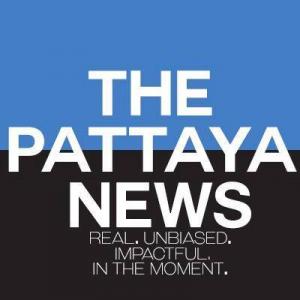Guest submission by Doc Martyn, Opinions and statements are his own
Medical Bytes, Thailand No 86: “Fast to Furious.â€
- Kevin, not his real name, has been a Facebook friend of mine for over 2 years. Last Sunday, he sent me the following message:
‘Hi, sorry to bother you over Songkran but could do with your advice. Starting yesterday I suddenly became out of breath if I moved around too much, lasted all day yesterday, and am still here today. If I stay seated it’s OK, but it only takes a small amount of movement for me to feel like this. I’ve got an oxygen monitor which shows O2 around 97-98% but my heart rate jumps to 140-160 then drops down quickly when I sit back down. I’ve stayed inside out of the heat for the last couple of days. The last alcohol I had was on Friday probably drunk maybe 5-6 Leos. Obviously, a bit concerned after 2 days, any advice would be appreciated.’Â
2. I suspected that Kevin had Atrial Fibrillation, AF, and, at the age of 57, this is a problem. AF produces a fast heart rate, a tachycardia, which is both irregular in beat rate, and irregular in volume. Kevin sent me a video of his O2 monitor, see Video below, the bottom line clearly shows that his tachycardia was irregularly irregular, the cardinal sign for AF.Â
3. AF is a complex problem, which, for ease of understanding, I will simplify. The heart has a pacemaker in the left atrium, the upper chamber of the heart, which sends an electrical impulse into the ventricles, the lower chambers of the heart. The pacemaker produces coordinated contraction of the heart muscles, to cause the heartbeat which pushes blood into the arteries. If this pacemaker fails the patient dies. To prevent death, nature has provided humans with additional ‘backup’ atrial pacemakers which engage when the main pacemaker fails.Â
In Kevin’s case several of these backup pacemakers were inappropriately activated, causing his AF. When the electrical stimulation of the upper chambers of the heart becomes chaotic, so does the response in the ventricles, resulting in irregularly irregular tachycardia, the complications of which are life-threatening.Â
Another complication of AF; is when the atrium is overwhelmed by the stimulus of the extra pacemakers, instead of contracting the atrium tends to quiver. As a result, the atrium fails to progress all the blood it contains into the ventricle, leaving blood in the left atrial appendage. This residual blood may clot. The clot can move into the left ventricle, from where it is pumped into the aorta, then it moves into the carotid artery and finally into the brain, causing a cerebrovascular accident, or a stroke.Â
4. 2 years previously, I had counseled Kevin about his obesity, his hypertension, his pre-diabetes, and his high LDLs (Low-Density Lipoprotein) the ‘dangerous cholesterol’. Kevin managed his problems effectively; he lost weight, commenced statins, and changed his eating habits; to intermittent fasting. His issues were settled.Â
I questioned Kevin about his recent general health. He mentioned that about 4 weeks previously he had experienced 2 hours of vision loss in his right eye. This was a Transient Ischaemic Attack, TIA (mini-stroke), known medically as Amaurosis Fugax. Amaurosis Fugax is usually caused by a small blood clot in the internal carotid artery. This was of concern; it suggested that Kevin had hardening of his arteries, including his coronary arteries, which, in part, would account for his nascent AF. Â
I impressed on Kevin with the importance of immediate management. I referred him to the Premium Clinic at the Queen Sirikit Hospital, Khon Kaen, the superior cardiac clinic, both in management and cost, in this country.Â
5. But, as with some patients who seek my advice, to save money Kevin went to his local hospital first. This hospital did not have a cardiologist, nor a cardiology Unit. The ECG (aka EKG) taken at the hospital suggested sinus tachycardia., not AF. The doctor informed Kevin that he did not have AF and ordered an injection of adenosine, a drug that stabilises cardiac arrhythmias. This was given.Â
Then Kevin requested release and transfer to the Queen Sirikit Hospital. The doctor declined his request, advising him that he could die during the journey. I advised Kevin to arrange a driver and go to Khon Kaen as soon as possible because; by leaving immediately if he died en route, he would be closer to a hospital that could save his life, than one that lacked such facility.
6. Kevin did not die in transit.Â
As expected, the service at Queen Sirikit was prompt and professional. Echocardiography demonstrated that Kevin did indeed have AF with a sustained ventricular response. But the most significant finding was that Kevin did not have a clot in his left atrial appendage. He was not at risk of stroke from his AF. He simply required Xarelto, a blood thinner, and Carvediol, a beta blocker, to control and manage his AF.Â
The total cost: THB 6000, THB 3000 of which was for medication; Xarelto is an expensive drug (80B/tablet; cost of 30 tablets THB 2400). When Kevin has recovered, I will suggest an alternative cheaper blood thinner.Â
7. Two days after commencing treatment Kevin felt significantly better. His pulse rate was regular at 82 beats/minute, although his pulse volume remained somewhat irregular. Kevin had survived his cardiac ordeal, although, to identify the degree of underlying atherosclerosis and hardening of the arteries, he still requires investigation of his arterial systems, both peripheral and cardiac.Â
But Kevin was angry. He asked me why the doctor at his local hospital had told the doctor at Queen Sirikit Hospital that Kevin did not receive any intravenous medication whilst under his care. This was incorrect. The doctor had discussed with me his intention to give the adenosine and Kevin clearly recalls the nurse giving it to him; it took her two attempts to locate his vein!Â
I am reluctant to comment on why this doctor perjured himself. In previous Medical Bytes Thailand, I have discussed, at length, the problems I have encountered with local ‘homegrown’ Thai doctors. I will leave you, the reader, to think about such unethical behavior and how it reflects on the Thai medical profession in general.Â
8. It is understandable that Kevin remains angry about this impropriety. The local doctor made the incorrect diagnosis and ordered Kevin to remain in his hospital. Kevin should be satisfied that he survived this cardiac ordeal but his progression from “Fast to Furious†is quite understandable.
Â




